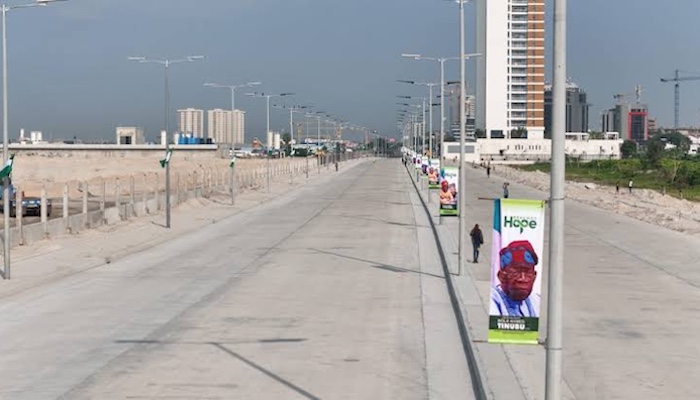News
NNPC exits road infrastructure tax credit scheme after $577.6m, N822.3bn investment

The Nigerian National Petroleum Company Limited (NNPC) has stopped funding the Road Infrastructure Tax Credit Scheme (RITCS), a flagship policy introduced during the administration of late former President Muhammadu Buhari.
The NNPC had committed $577.6 million and N822.3 billion to the program over 16 months, according to a report from the Federation Account Allocation Committee (FAAC).
The federal government now required N3 trillion to complete road projects awarded under the company’s tax credit scheme.
With NNPC’s exit, the Ministry of Works would explore alternative funding models, including Public-Private Partnerships (PPPs), to prevent project abandonment.
The RITCS was launched in 2019 through Executive Order 007, allowing private sector participants to finance critical road infrastructure in exchange for tax credits equivalent to their investment.
NNPC’s withdrawal from the scheme aligned with its new operational focus on profitability and efficiency, reducing quasi-fiscal obligations.
Report from FAAC’s Post-Mortem Sub-Committee for July, covering February 2024 to May 2025, showed that NNPC’s contributions to the scheme were channelled through the Federal Inland Revenue Service (FIRS) under the Joint Venture (JV) Gas Companies’ Companies Income Tax (CIT) obligations.
These payments were deducted monthly from the company’s tax liabilities of the National Oil Company (NOC) and allocated to road construction and rehabilitation projects approved under the scheme.
According to the FAAC records, NNPC’s last monthly dollar payment for the RITCS was made in December 2024, when it remitted its last $52.5 million monthly contribution to the programme.
The report showed that no further dollar deductions were recorded from January to May 2025.
By the close of December 2024, cumulative dollar payments had reached $577,604,432.08.
However, the detailed breakdown showed that from February this year, the deductions reverted to the local currency, the naira.
According to the document, naira-denominated deductions for specific projects were thereafter recorded, with N151.27 billion deducted in January 2025 and a significantly larger N671.04 billion in April 2025, to hit a total of N822.3 billion.
The FAAC Post-Mortem Sub-Committee noted that the sums captured in its June 2025 analysis did not include payments by NNPC or other agencies before 2024, implying that the company’s total historical contribution to the RITCS could be substantially higher when earlier years are computed.
Although the RITCS launched in 2019, had received several criticisms, a struggling NNPC forged on with the programme and was one of the largest participants, committing to fund major highways across the country and committing substantial corporate resources to the programme.
In Phase I, launched late in 2021, NNPC pledged N621.24 billion toward the reconstruction of 21 strategic roads spanning approximately 1,804.6 km across all six geopolitical zones, including the Ilorin–Jebba–Mokwa/Bokani Junction Road (Sections I & II) in Kwara and Niger States.
FG requires N3 trillion to complete abandoned projects as oil firm shifts focus to core operations
While also including the Suleja–Minna Road, and also including a second phase extension; reconstruction of Bida–Lambata road; and emergency repairs along Mokwa–Makera–Tegina toward the Kaduna state border.
Besides, a key priority was the Lagos–Badagry Expressway, which underwent rehabilitation and partial expansion to enhance trade connectivity in the South-west.
In Phase II, approved in January 2023, NNPC expanded its road infrastructure footprint, securing approval to invest N1.9 trillion in the reconstruction of 44 federal roads, covering 4,554 km nationwide.
However, despite these huge investments, Nigerians have continued to complain about the deplorable state of some major road arteries.
Among the most notable projects in this second phase were the East-West Road, spanning Warri, Port Harcourt, Ahoada, and Eket, the Port Harcourt–Onne Junction upgrade, the Eket bypass, and the construction of the Nembe–Brass Road in Bayelsa State.
Also, the North-east region was supposed to receive major rehabilitation work, including the Yola–Mubi–Maiduguri corridor, Numan–Jalingo, Bali–Serti–Gashaka–Gembu route in Taraba, and stretches in Bauchi.
In the North-central, some projects included parts of the Minna–Zungeru–Tegina–Kontagora axis, and sections of the Lokoja–Benin Road, spanning Obajana to Benin City.
However, the programme has also faced criticisms. Nigerians raised concerns about transparency in project selection, the actual cost of projects compared to market rates, and the fiscal impact on government revenues, particularly at a time when Nigeria is grappling with high debt servicing costs and foreign exchange pressures.
In the same vein, the FAAC’s latest update showed that while the Ad-hoc Committee set up to review RITCS deductions had written to both the FIRS and the Federal Ministry of Works for details on agencies benefitting from the scheme, the Ministry of Works had yet to respond as of the sub-committee’s last meeting.
The Federal Ministry of Finance submitted its report on July 16, 2025, for review, the records showed.
By exiting the scheme, the NNPC has reduced its non-core expenditure commitments, freeing up resources for upstream investments, energy transition projects, and other strategic ventures.
Given that the scheme was designed to run for several years with staggered tax credit redemptions, the sudden exit of a major contributor like the NNPC, THISDAY learnt, has necessitated some adjustments.
But the Minister of Works, David Umahi, hinted in the week that President Bola Tinubu had directed the ministry to explore alternative funding models, adding that a list of affected road projects is being compiled and will be evaluated under a Public-Private model.
“The federal government requires N3 trillion to complete road projects awarded under the NNPC tax credit scheme,” Umahi hinted during a briefing where he sought to dismiss reports of cracks on the controversial Lagos-Calabar coastal highway.
Some of the projects affected by NNPC’s exit include, Maraba-Keffi road project. A 43.6-kilometre dual carriageway that has been redesigned using concrete pavement and will be delivered in phases due to economic constraints.
Also affected is the Benin-Warri and Benin-Asaba Roads, connecting to the 1st Niger Bridge. These hese projects were part of the key initiatives ongoing across multiple regions.
The Lagos-Abeokuta corridor, a critical route undergoing rehabilitation and reconstruction, Bayelsa and Delta axis essential projects in the South-South region, Kano-Maiduguri artery, a major road project in the North-East region.
Minister of Works David Umahi said that President Bola Tinubu has directed the ministry to assess and adopt alternative financing models to prevent project abandonment.
The ministry is compiling a list of affected projects, which will be presented to the President for review.
The government is exploring PPPs to fill the funding gap and ensure timely delivery of essential road projects nationwide.
Contractors with demonstrated funding capacity may qualify for these collaborations, pending presidential approval.
Permanent Secretary Olufunsho Adebiyi addressed concerned over regional disparities in project distribution, explaining that construction costs vary widely across regions due to factors like terrain, groundwater levels, and availability of materials.
‘For instance, constructing one kilometre of road in Bayelsa may cost as much as building ten kilometres in Katsina .



